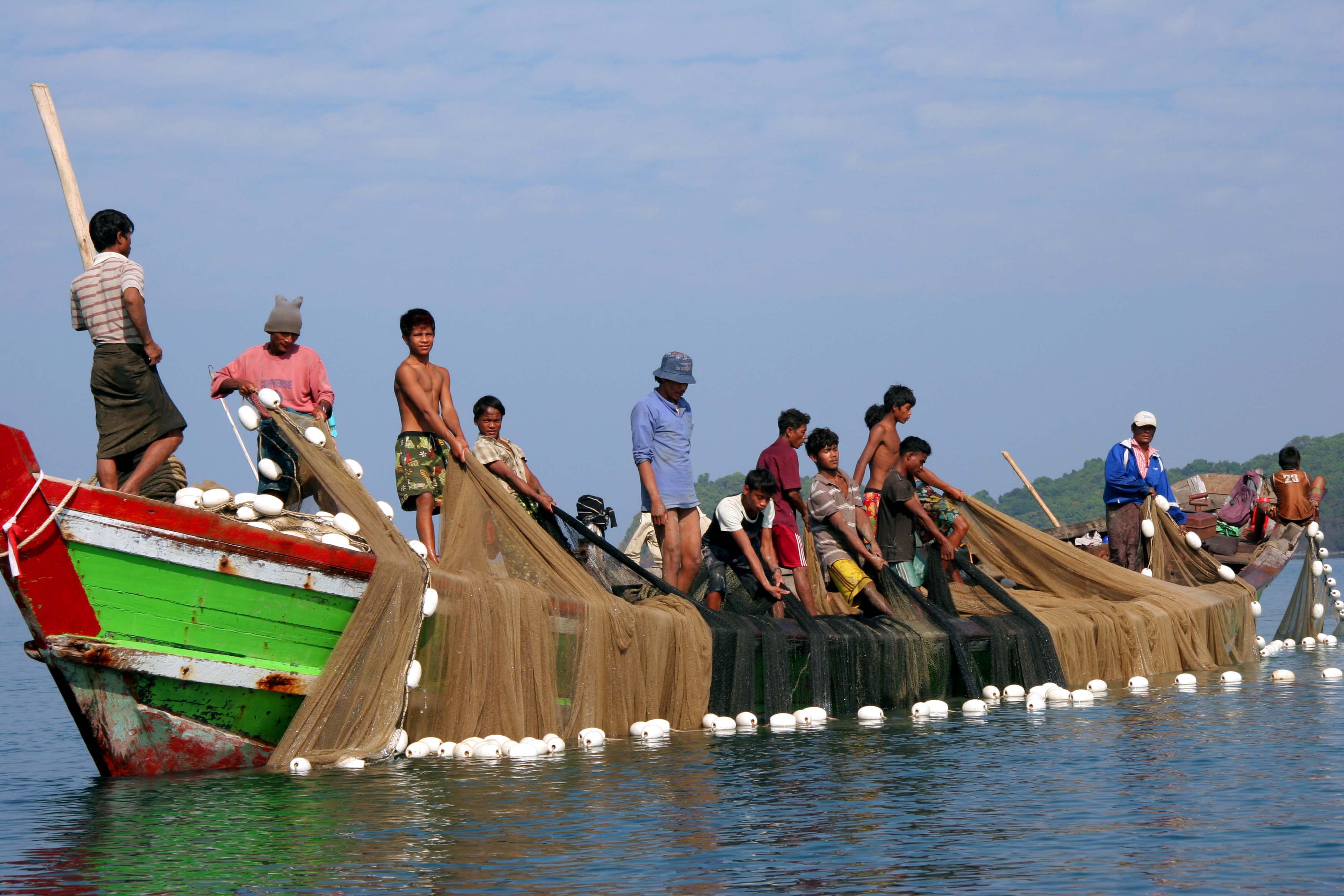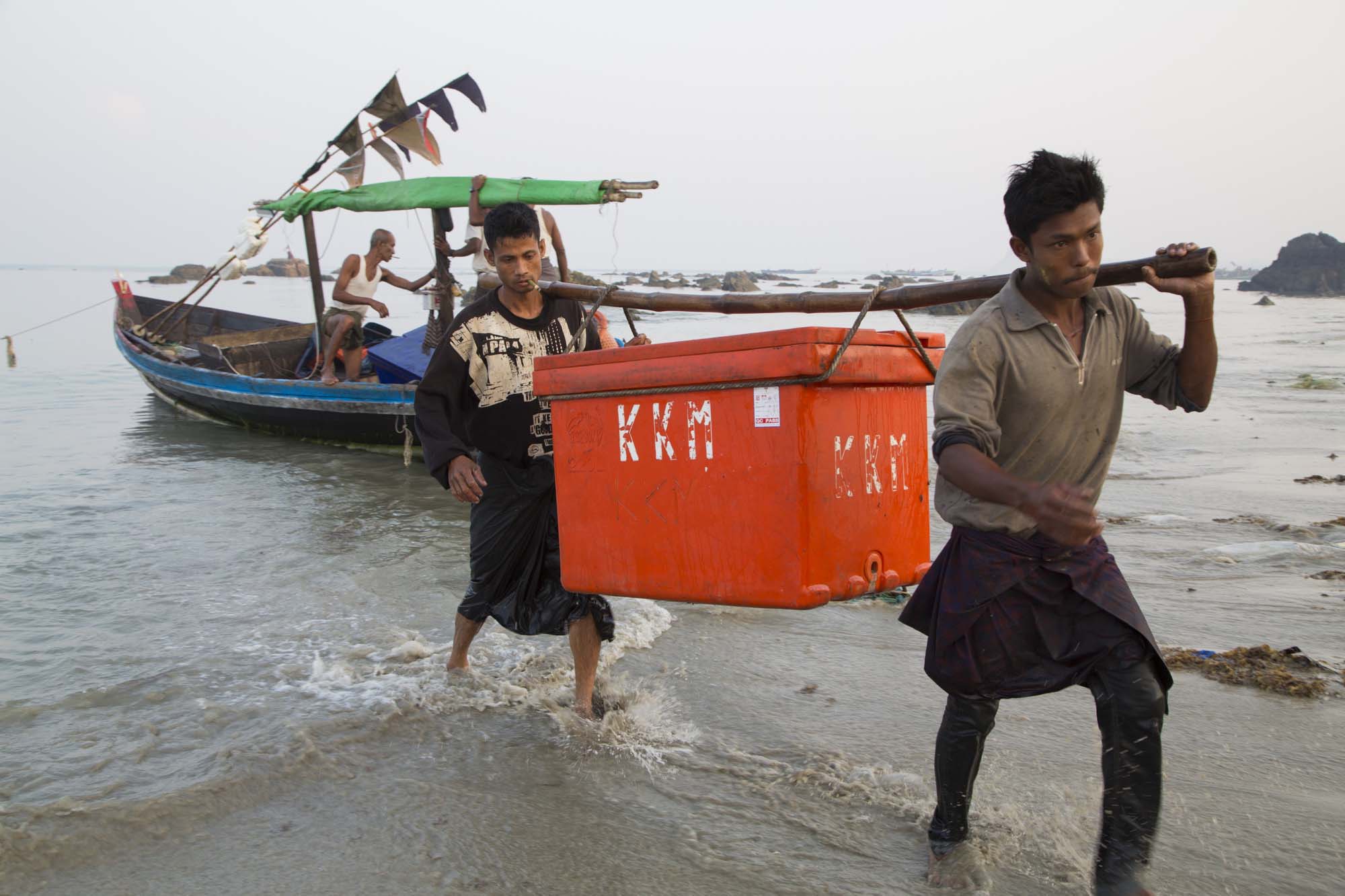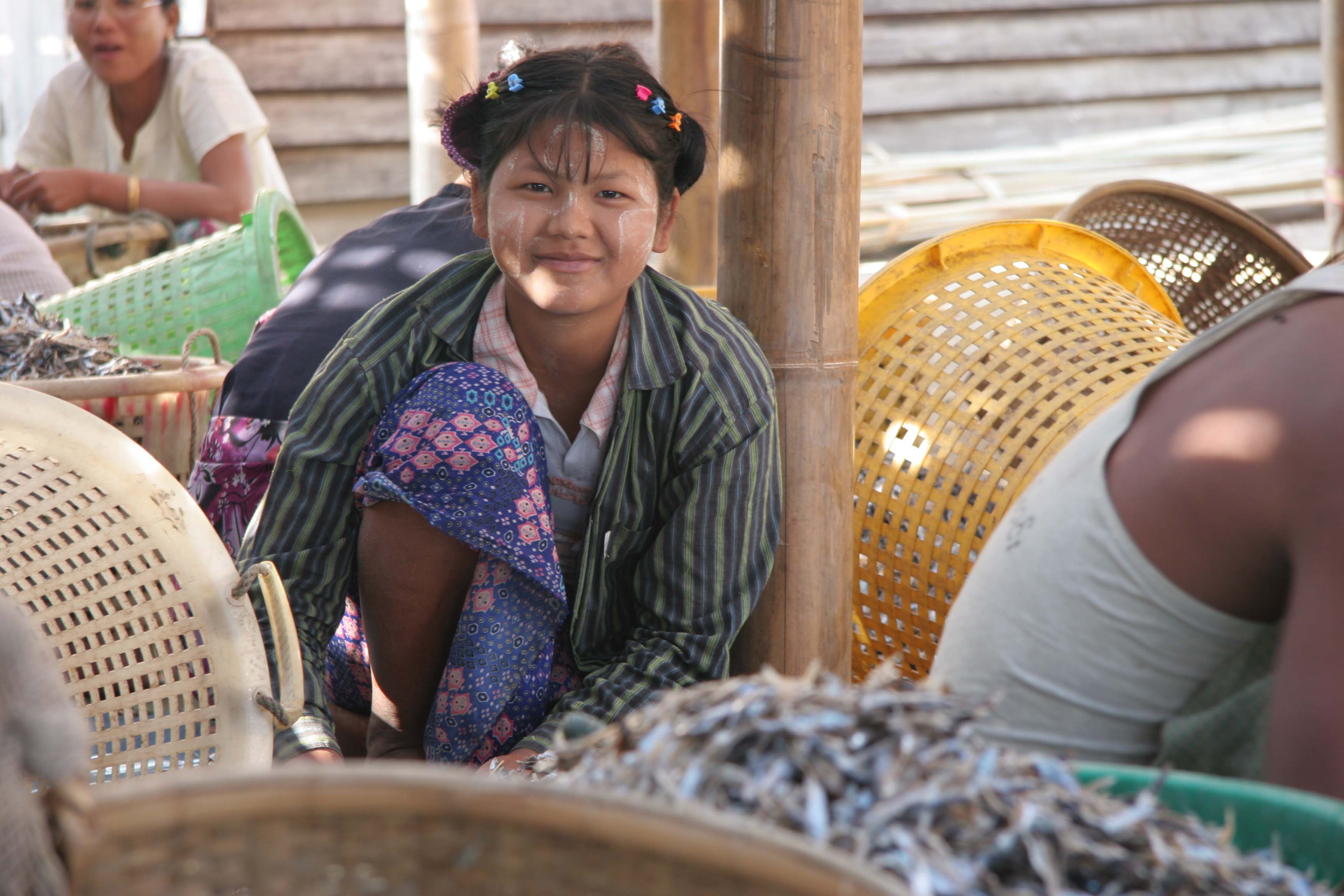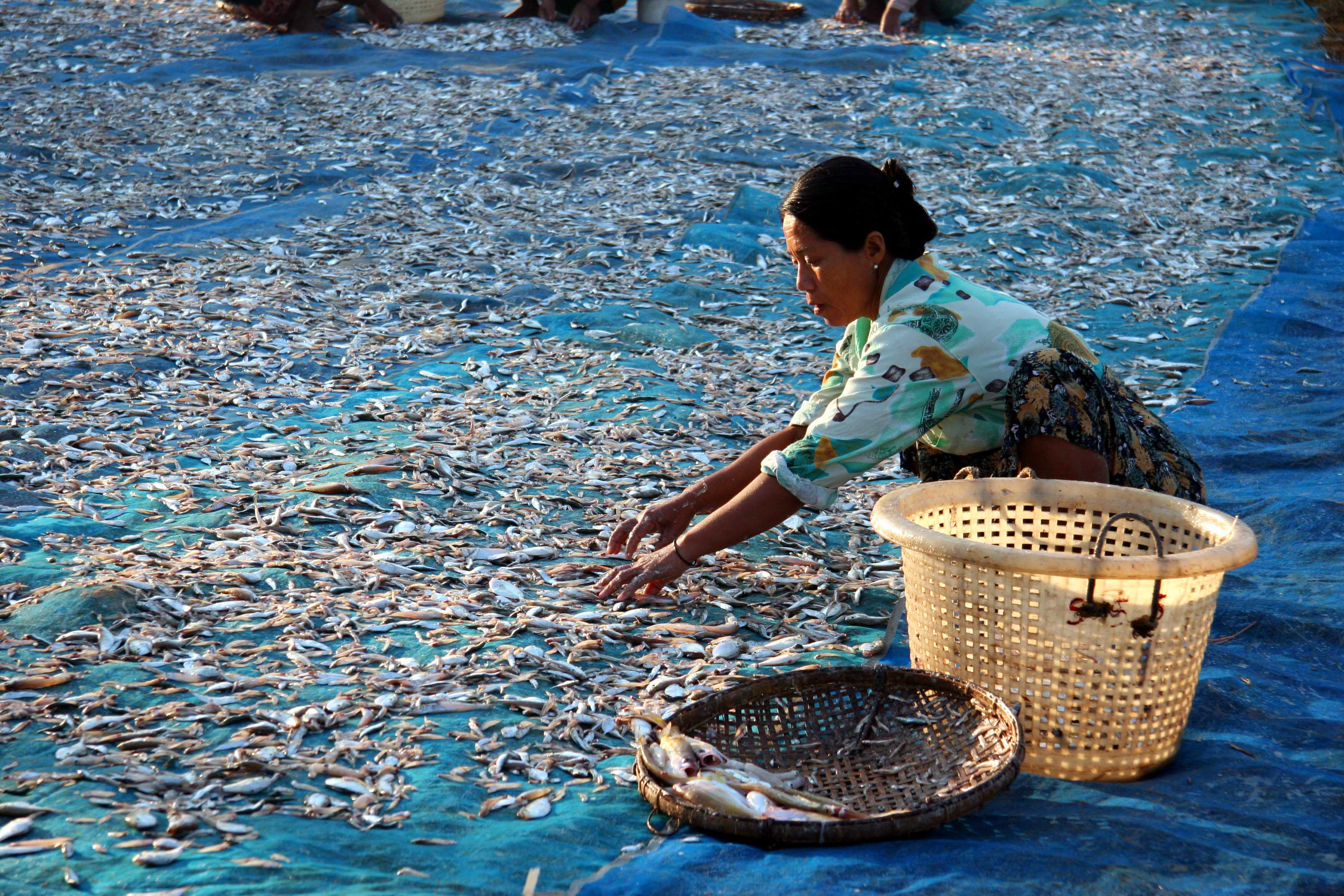Myanmar’s coastal waters harbour some of the world’s most important marine biodiversity, with several islands and inshore areas identified as Key Biodiversity Areas of global importance. Near-shore areas and offshore islands provide habitats for populations of globally threatened marine turtles, sharks and rays. In the north-west, vast seagrass beds and a large portion of Southeast Asia’s remaining mangrove forest provide critical habitat for a range of species, including dugong, while the southern waters of the Myeik Archipelago are recognised for their diverse coral reefs. In Myanmar, marine fisheries waters also serve as a major contributor to food security, providing direct livelihoods to approximately 1.4 million fishers, with per capita consumptions remaining one of the highest globally. The values of marine resources to Myanmar’s people are not only nutrition and employment, but also social and bequest values that contribute to the wellbeing of many small-scale and artisanal fishers operating within its coastal waters. WCS established our marine program in Myanmar in 2015 and is currently supporting biodiversity conservation and sustainable coastal fisheries throughout Myanmar’s western coastal waters. By aligning with Myanmar’s commitments under the Convention on Biological Diversity (CBD) and the Convention for International Trade in Endangered Species of Wild Fauna and Flora (CITES), our marine program is focused on supporting Myanmar to secure a sustainable future for its marine resources through four synergistic visions:
- Empowered Communities
- Thriving Fisheries
- Secured Wildlife
- Sustainable Companies

Empowered Communities
WCS is working with fishing communities throughout Myanmar’s coastline to ensure that marine related livelihoods are sustainable and resilient in the context of a changing environmental and political climate. Through this process, WCS promotes inclusivity for women and ethnic minorities to support equitable benefits from the fisheries sectors.
How do we do this?
- Map local knowledge through participatory mapping of fishing grounds and activities
- Assess livelihood diversification and aspirations in coastal fishing communities
- Work with women in fisheries to identify specific gender-related issues and recommend opportunities for improving gender equality and livelihood opportunities for women
- Facilitate other livelihood opportunities that can, over time, take pressure off marine resources by improving new skills and access to new market opportunities

Thriving Fisheries
To help secure a sustainable future for Myanmar’s coastal fisheries, WCS works with communities and government to empower coastal fishers to have greater control and decision making over their fishing grounds, and to increase the sustainability of fisheries. We use Marine Spatial Planning (MSP) to develop co-management areas, and guide the management of these areas through evidence based practice. This approach can result in livelihood benefits to small-scale fishers by reallocating fishing rights to local fishers, thereby reducing local competition for marine resources.
How do we do this?
- Develop a national level MSP strategy
- Provide GIS geo-mapping support to local government agencies and civil society organizations
- Guide coastal communities in developing co-management areas through MSP and implementation support
- Assess near-shore and offshore fisheries legislation and practices to inform fisheries governance reform
- For more information on Myanmar’s first co-management areas see here

Secured Wildlife
Few assessments have been attempted to determine the status of marine species and habitats along Myanmar's west coast. WCS is currently focusing efforts on habitat mapping and biological monitoring of these coastal waters, the outputs of which filters into marine species protection strategies (particularly for sharks and rays) and Marine Protected Area development.
How do we do this?
- Targeted biodiversity and habitat surveys and assessments throughout Myanmar’s west-coast
- Use MSP to secure a comprehensive Marine Protected Area network that aim to support biodiversity conservation • Create a publically available Marine Biodiversity Atlas to support the sharing of marine and coastal data
- Assess how fishers perceive and interact with sharks to better characterise Myanmar’s shark fishery
- Support the government in developing a National Plan of Action for Sharks and Rays
- Design marine species protection strategies, including for sharks, rays, turtles and dugong
- Support national capacity for marine research and conservation

Sustainable Companies
In implementing our activities, WCS operates in a multi-stakeholder approach that includes multi-departments of government, local partners and community members, and private sector. By leveraging regulatory and market mechanisms, our vision for Myanmar is to harmonize conservation and economic developments towards securing a sustainable Blue Economy.
How do we do this?
- Design, implement and test innovative financing and market-based fisheries conservation and restoration models
- Use MSP to identify high risk areas (high biodiversity or important fishing sites) where extractive activities should be avoided
- Work with the private sector to promote the sustainability and ethicality of their procedures
- For further information, please download our synthesis report: Current knowledge and research recommendations for Marine Conservation in Myanmar.